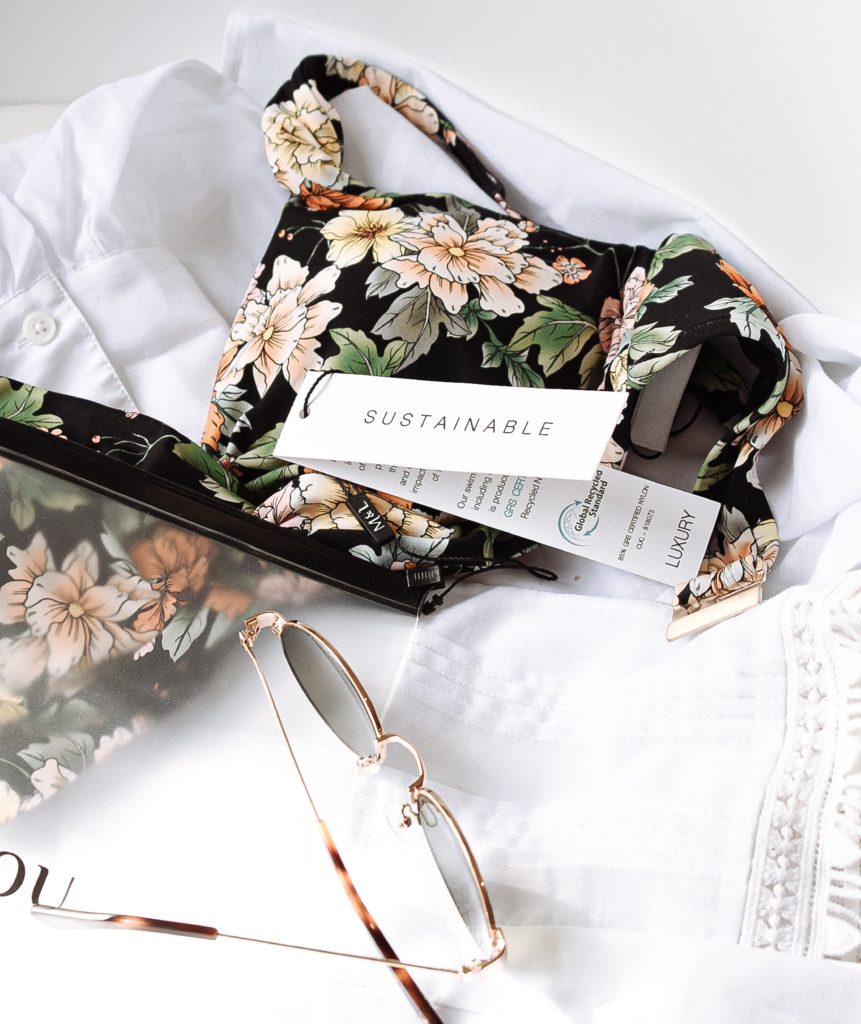7 Ways to Achieve Sustainability in Fashion

According to industry analysts “sustainability” will be one of the biggest challenges and opportunities for the fashion industry in 2020/21.[I] This trend is being driven by customer demand for a sustainable transformation in the industry. Today’s savvy shoppers will not be fooled by a simple label claiming “sustainable”. True sustainability in fashion applies to the entire supply chain, production processes, and product afterlife.
What is sustainability in Fashion?
Sustainability in Fashion is defined by the Journal of Fashion Marketing and Management as being comprised of “local sourcing and production, transparency across the supply chain, traceability of work processes and raw materials, environmentally friendly raw materials, safe working conditions, and fair wages.” [ii]
Have your cake and eat it
Many fashion businesses that have had to put profits first just to stay ahead in a competitive market are now playing catch up. However, the good news is that research shows that today’s younger generations are increasingly interested in sustainability and willing to pay more for fashion that has the least negative impact on the environment – 31% of Gen Z’ers versus 12% of Baby Boomers[iii] Does this mean that the fashion industry really can have its cake and eat it and finally abandon a strict profits-only diet? The real question is: how does the fashion industry achieve all-round efficiencies and profitability in a highly sustainable way?
Technology: on-trend, sustainable business success

The next generation all-in-one business management solutions for fashion and apparel are designed to build sustainability while boosting efficiencies, customer loyalty and profitability. In this piece we explain the top 7 ways to benefit from the latest advances in intelligent, cloud-based automation using applications such as Microsoft Dynamics 365 Business Central and itSuitsFashion or K3 Pebblestone. Including how to:
- Streamline your processes
- Improve all-round visibility
- Control your manufacturing process
- Reduce waste
- Better manage stock
- Ensure robust logistics and fulfilment
- Embrace automation
1. Streamline processes
Accelerate and simplify key processes from streamlining incoming goods and deliveries, planning events more easily, helping customers to make faster purchasing decisions, to ensuring that you never run out of stock. The ability to streamline processes also creates a level playing field, giving traditional bricks and mortar fashion houses the agility to find creative, interesting ways to entice customers and compete with their online rivals.
2. Improve all-round visibility
Specifically of raw materials, stock, inventory levels, warehouse activities and supply chains. The latest technology, accessible from anywhere and on any device, provides a single, complete view of everything. This helps fashion and apparel companies to enhance order fulfilment, minimise customer returns and drives down distribution costs. It also helps reduce carbon footprint because the right number and type of garments and accessories are delivered to the right place, at the right time.
3. Complete control over the manufacturing process
Powerful integration capabilities make it possible to extract valuable business intelligence from multiple systems. A single solution like Business Central and itSuitsFashion means fashion companies can control everything from specifying the raw materials used in designs to selecting the best factories that share sustainable values and ethical ways of working.
4. Reduce waste
Greater visibility of raw materials, staff, logistics and fulfilment activities enables fashion manufacturers to save costs and reduce the unnecessary fabric & utility waste that negatively impact the environment.
5. Better stock management
The latest technology provides an accurate snapshot of stock levels. It also gives you visibility of where stock is being held and how it should be transferred from the warehouse to store or from store to store. This means you can transfer your stock to best meet customer demand or e-commerce orders while minimising your environmental impact.
6. Robust logistics and fulfilment
So often, especially in the wholesale business, the wrong products are supplied which then need to be returned and replaced – wasting time, money and increasing the carbon footprint. The latest technological solutions help businesses better manage their stock and order fulfilment by clearly showing how orders are placed with manufacturers or suppliers; then suggesting how they should be delivered to the warehouse, store, head office, retailer or direct to the customer.
7. Embrace automation
Automation takes away the time-consuming and often error-prone manual process of reconciling data from multiple spreadsheets or systems. With the click of a mouse or the swipe of a mobile device, fashion companies know exactly how much it costs to make a sustainable item. This means they can quickly establish a retail price that benefits the business and attracts today’s ethical consumer. What’s more, organisations that deploy automated technology to manage their fashion eco-system can expect to achieve 100% ROI within 12 months.
About Xpedition
With 20 years as a Microsoft Solutions Partner and more than 630 successful Dynamics 365 projects delivered, Xpedition is one of the UK’s leading and trusted Microsoft Dynamics 365 implementation partners.
Whether you’re looking to move to the cloud, implement a new business application, enhance your existing Dynamics 365 system, or need support, we’re here to help businesses transform and grow.
Our Microsoft certified consultants have deep experience of implementing Dynamics 365 CRM and ERP across a range of industry sectors and types of business: helping ambitious organisations reimagine their business with modern cloud technologies.
We provide expert guidance and support in buying, implementing, and optimising Dynamics 365 applications. And with a philosophy of coaching businesses to achieve the digital transformation that’s right for them, you can rest assured you’ve found the ideal Dynamics 365 partner.
[i] “The State of Fashion 2020” – McKinsey & Company
https://www.mckinsey.com/~/media/McKinsey/Industries/Retail/Our%20Insights/The%20state%20of%20fashion%202020%20Navigating%20uncertainty/The-State-of-Fashion-2020-vF.ashx
[ii] What is sustainable fashion? The Journal of Fashion Marketing and Management (2016) – https://www.emerald.com/insight/content/doi/10.1108/JFMM-07-2015-0052/full/html
[iii] “The State of Fashion 2020” – McKinsey & Company
https://www.mckinsey.com/~/media/McKinsey/Industries/Retail/Our%20Insights/The%20state%20of%20fashion%202020%20Navigating%20uncertainty/The-State-of-Fashion-2020-vF.ashx




